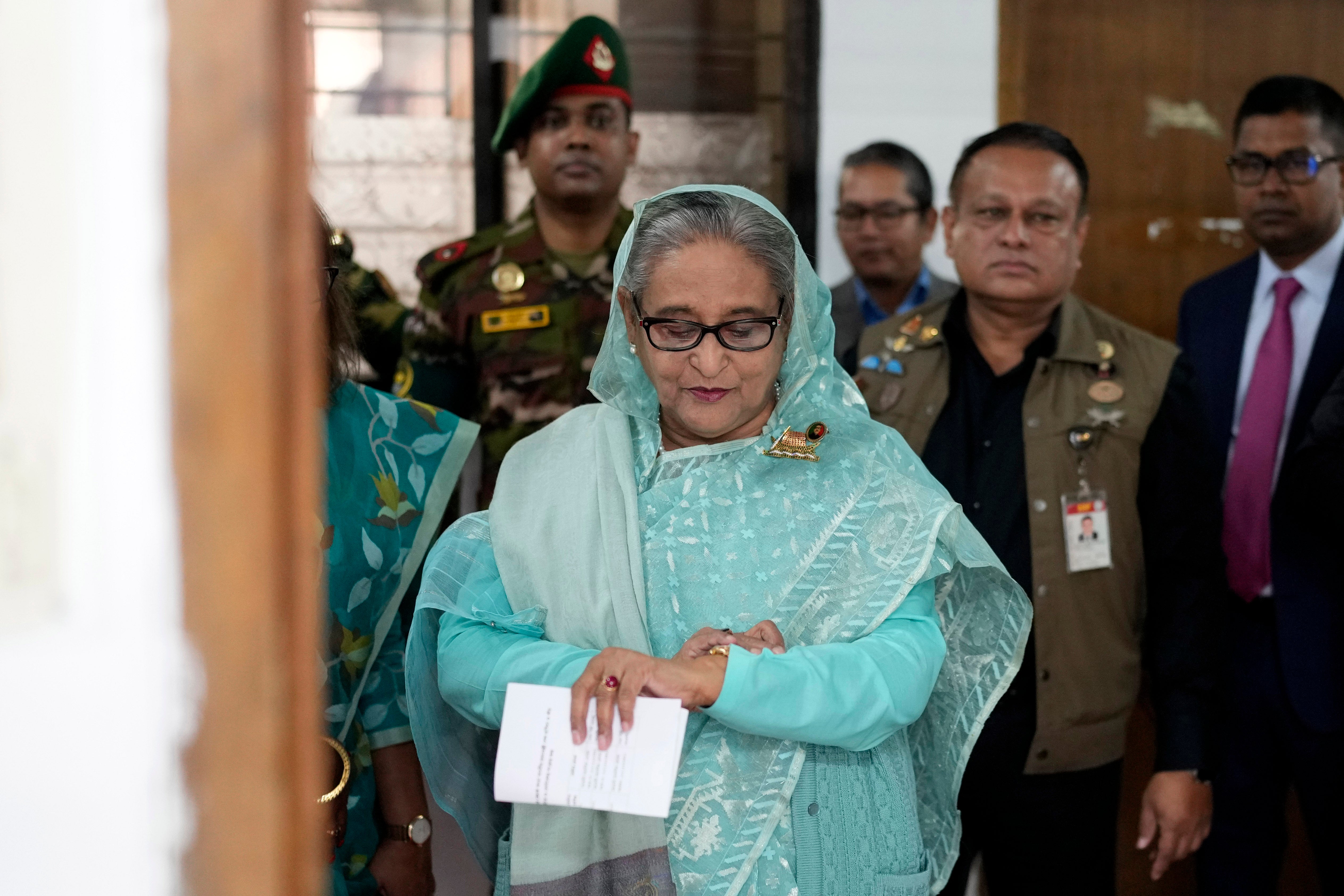Bangladesh to seek Sheikh Hasina’s extradition from India to face ‘crimes against humanity’ trial
Interim government head says India’s refusal to extradite deposed prime minister could sour relations between the neighbours

Your support helps us to tell the story
From reproductive rights to climate change to Big Tech, The Independent is on the ground when the story is developing. Whether it's investigating the financials of Elon Musk's pro-Trump PAC or producing our latest documentary, 'The A Word', which shines a light on the American women fighting for reproductive rights, we know how important it is to parse out the facts from the messaging.
At such a critical moment in US history, we need reporters on the ground. Your donation allows us to keep sending journalists to speak to both sides of the story.
The Independent is trusted by Americans across the entire political spectrum. And unlike many other quality news outlets, we choose not to lock Americans out of our reporting and analysis with paywalls. We believe quality journalism should be available to everyone, paid for by those who can afford it.
Your support makes all the difference.Bangladesh will seek the extradition of Sheikh Hasina, who fled to neighbouring India after her government was overthrown by student-led street protests in August.
The International Crimes Tribunal in Dhaka on 17 October issued arrest warrants for the former prime minister as well as 45 of her cabinet ministers, advisors, and military and civil officials.
Ms Hasina,77, has been living in exile in India since 5 August when protesters stormed her residence in Dhaka, ending her 15-year rule in the South Asian country.
The deposed leader has continued her political activities from India, Muhammad Yunus, who heads the interim government as the chief adviser, told The Hindu newspaper. India’s refusal to send her back could sour relations between the South Asian neighbours, he said.
Mr Yunus previously said in an address to the nation his interim administration would "seek the extradition of the ousted autocrat from India".
"We have already taken initiatives to try those responsible for enforced disappearances, murders and the mass killings during the July-to-August uprising,” he said.
Ms Hasina, leader of the Awami League party, has been living in a safe house in the capital New Delhi.
Calling India and Bangladesh twins "born to be together", Mr Yunus said he wanted to meet Indian prime minister Narendra Modi.
"Our dream is imagining a relationship like the European Union,” he added, wishing for freedom of movement and trade between the neighbours. “That's the direction we want to go.”
Ms Hasina’s government faced mass protests in July against public sector job quotas which quickly escalated into the deadliest violence the nation had seen in over four decades. More than 1,000 people, including children, journalists and law enforcement agents and journalists, were killed in the capital Dhaka alone, authorities said.
Police were accused of using lethal force to contain the protests before stepping back in the wake of the prime minister’s ouster.
At least 13 former top government officials arrested after the fall of the government appeared in a court Monday to face charges of “enabling massacres". Another six people were set to appear on Wednesday, officials said.
Ms Hasina faces charges of "massacres, killings, and crimes against humanity".
Prosecutor Mohammad Tajul Islam said that the former top officials were "complicit in enabling massacres by participating in planning, inciting violence, ordering law enforcement officers to shoot on sight, and obstructing efforts to prevent a genocide".
The prosecution has contacted Interpol for help in arresting Ms Hasina “as she has committed crimes against humanity", he added.
The court has asked the prosecution to submit their investigation report by 17 December.
Meanwhile, the US has urged Dhaka to end crackdowns on peaceful protesters after a demonstration sparked by a Facebook post led to a clash with law enforcement officials.
"We have made it clear to the government of Bangladesh, as we do to countries around the world, that we support the right to peaceful protest and that no government should engage in violent crackdowns on peaceful demonstrations," State Department spokesperson Matthew Miller told reporters.
Join our commenting forum
Join thought-provoking conversations, follow other Independent readers and see their replies
Comments